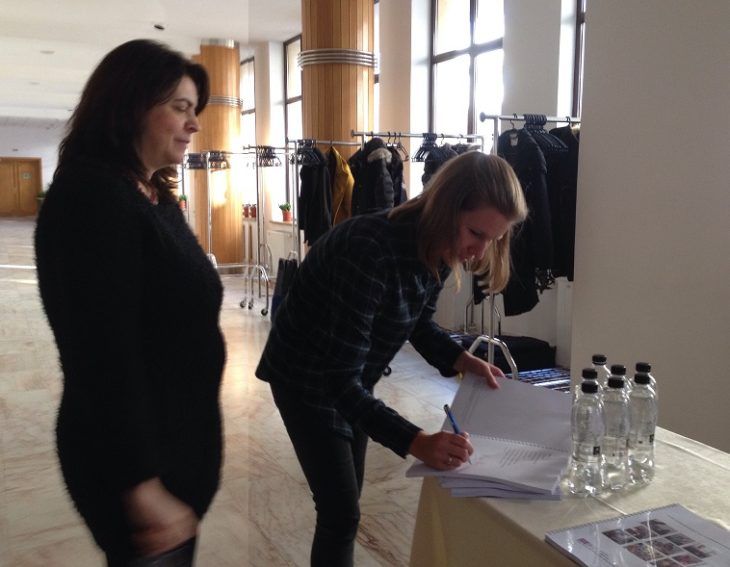Update from Romania
Romania
- Children
- Disability
- Activities

I am back in the office this morning, basking in the excitements of my recent visit to Brasov. Accompanied and guided by our fantastic Romanian Programme Officer, Magda Pata, our three days began with a meeting at the University of Bucharest. Loredana Tudorache (asistent universitar, Facultatea de Psihopedagogie Speciala, Universitatea Bucuresti) is extremely keen to explore how the University might develop the training they offer in various therapy fields. With this in mind she is helping us explore accreditation of our Distance learning Programme with the Romanian College of Psychology (COPSI), she is enrolling on the course herself to experience our approach first hand next year, and she travelled to Brasov to hear about current practice of music therapy from others around the country.
Tuesday really reflected for me the impact of the conference we arranged in Romania last year; the true capacity building role we can play and the extraordinary commitment of our Local Partners. Last year, one of our Local Partners put it to the 70 delegates: “Why do we need Music as Therapy International to co-ordinate a conference like this? Why can’t we do it ourselves?” And on Tuesday, they did. Co-ordinated by the leader and students of the University of Transylvania Masters in Music Therapy, the one day conference saw our Local Partners, students and graduates from the Masters programme, and tutors on the course present wide ranging music therapy work. There was significantly more focus on the practical application of music therapy and excitement about making the conference an annual event.
I also had the opportunity to present a Research Summary which we had prepared in response to a request from conference delegates last year. The 175-page document “What is Music Therapy? How does it work and what evidence do we have?” was extremely well-received and several people made voluntary donations in return for copies. The leader of the Masters Music Therapy Programme in Brasov is going to send copies to universities across the country so the resource will be widely available in libraries (as well as via our Romanian microsite).
I wanted to thank you for your presentation and the book. It’s such a GREAT resource. I had a 5 hour bus trip back and I had the chance to study it right away. I think you’ve put so much work into it.
Local Partner feedback
On Wednesday we were pleased to appoint Local Partner Monica Szabo to the role of Moderator on our Distance Learning Progamme. Monica has been developing her use of music with children in special schools since an introductory project from us back in 2002. She has become a skilled trainer and supervisor and has edited a book on the subject as well. A true pioneer. We are delighted to have her involved in this next step of transferring our Distance Learning Programme to be locally led from Romania.
Our final meeting was with Stela Dragulin and Romania’s first Music Therapy PhD student Fulvia Constantin. It was exciting to hear of their active plans to open a music therapy centre in Brasov and the work they are doing to get the profession of ‘Music Therapist’ legally recognised. Additionally, Fulvia’s PhD will enable her to become a tutor on the Masters Programme (a PhD is a minimum requirement to teach at university level in Romania) and she is planning to enrol on our Distance Learning Programme next year so that she might learn more about our approach and then be in a strong position to identify which aspects of it may be be relevant to enhance the Masters’ curriculum. It was so heartening for us – and for our dedicated Local Partners who have been using our approach to music therapy for so many years – to see how the University recognises its value and is open to incorporating it into its course.
It was a small trip for us, but really marked a big step in the development of Romania’s own music therapy practice. Capacity Building at its most exciting.
Alexia
Related projects
-
Conference Participation: Brasov 2016
Romania
- Adults
- Children
- Disability
- Elderly
- Mental health
- Young people
